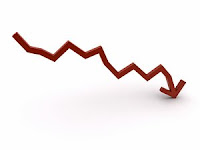1. Stock
This picture represents stock because a person can own one part of a large company and receive the benefits.
2. Bond
This picture is what a bond states, it is a promise to repay a certain amount (which may or may not include interest) in a stated time frame.
3. Underwrite/ Underwriter/ going public
The paparazzi is what normally comes out when celebrities come out in public, and companies bring their security issues out in the open.
4. Primary Market and Secondary Market
The man with the key represents the sellers in the market and the couple represents the buyers who will either buy directly from him or go and sell it to different people.
5. Bulls and Bears

Bulls are the optimistic ones compared to Bears who are more pessimistic, and so these two graphs represent how each side would view a future market.
6. Selling Short
To me, this looks like a man trying to get rid of papers as fast as he possibly can, which is what happens when a person buys something but then must sell it quickly because they believe the market will soon decline.
7. Franchise
This is a good portrayal of how a business with franchises is laid out, smaller businesses are able to branch out and reach more customers because of the bigger, already known name.
This picture represents stock because a person can own one part of a large company and receive the benefits.
2. Bond
This picture is what a bond states, it is a promise to repay a certain amount (which may or may not include interest) in a stated time frame.
3. Underwrite/ Underwriter/ going public
The paparazzi is what normally comes out when celebrities come out in public, and companies bring their security issues out in the open.
4. Primary Market and Secondary Market
The man with the key represents the sellers in the market and the couple represents the buyers who will either buy directly from him or go and sell it to different people.
5. Bulls and Bears

Bulls are the optimistic ones compared to Bears who are more pessimistic, and so these two graphs represent how each side would view a future market.
6. Selling Short
To me, this looks like a man trying to get rid of papers as fast as he possibly can, which is what happens when a person buys something but then must sell it quickly because they believe the market will soon decline.
7. Franchise
This is a good portrayal of how a business with franchises is laid out, smaller businesses are able to branch out and reach more customers because of the bigger, already known name.









.jpg)
.jpg)



.jpg)
.jpg)